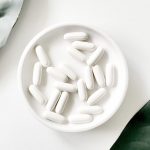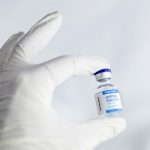Scientists find a universal antibody therapy to fight all COVID-19 variants
Scientists from the University of Alabama at Birmingham found a neutralizing monoclonal antibody that potentially acts as a potent universal coronavirus therapy against COVID-19...
This drug combo may treat COVID-19 effectively
In a recent study from UCL, researchers found new drug combinations with the potential to treat severe cases of COVID-19 infection at different stages...
Scarring lung disorders and post-COVID lung disease share origins
Scientists from the University of California San Diego found that post-COVID lung disease shares origins with other scarring lung disorders.
The research was published in...
Rethink what you thought you knew about COVID-19 reinfection
Forget what you thought you knew about catching COVID-19 more than once. SARS-CoV-2, the virus that causes COVID-19, keeps evolving – and so has...
High blood pressure may double your risk of severe COVID, even after full vaccination
Scientists from Cedars-Sinai found that high blood pressure may double a person's risk for hospitalization from an Omicron-variant COVID-19 infection—even despite full vaccination including...
Long COVID-related fatigue linked to anxiety and depression
Scientists from the Universitat Oberta de Catalunya found that fatigue in long COVID patients is related to anxiety, depression and apathy.
The research is published...
Vaccines have up to 90% efficacy against severe COVID-19 for up to six months
Scientists from Penn State found that protection against symptomatic COVID-19 begins to decrease after one month from initial vaccination, while immunity against severe COVID-19...
This anti-inflammatory compound may treat severe COVID-19
Scientists from the University of Texas Health Houston found an anti-inflammatory compound may have the potential to treat systemic inflammation and brain injury in...
Estrogen hormone may help prevent severe COVID-19 in women
In a recent study from the University of Helsinki, scientists found an older woman’s estrogen levels may be linked to her chances of dying...
COVID booster’s protection against omicron decreases a lot within 3 months
Scientists from the National Institutes of Health found that although COVID-19 booster vaccinations in adults elicit high levels of neutralizing antibodies against the omicron...










